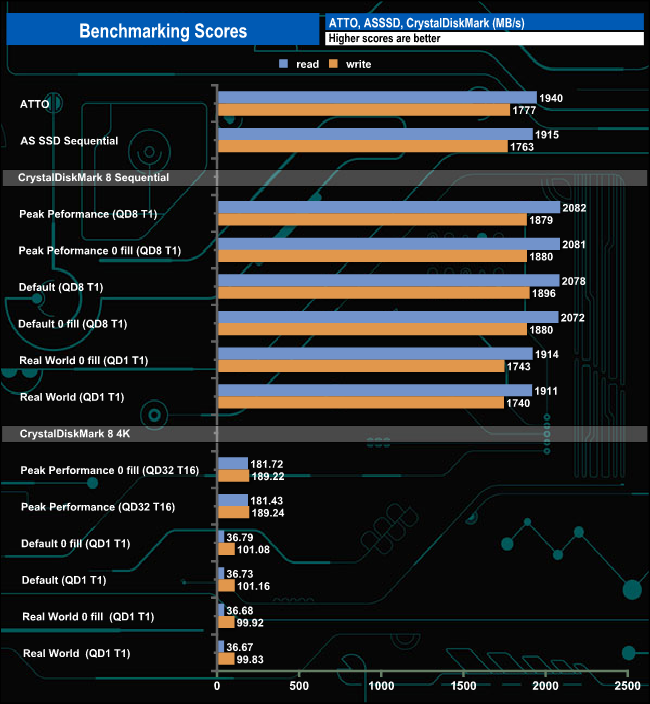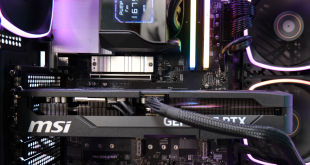Out of the box, the drive is factory formatted as exFAT but to run some of our tests we re-formatted it as NTFS. To test the drive at its full USB 3.2 Gen2 x 2 speed we used a Gigabyte GC-USB 3.2 GEN2X2 (rev1.1) expansion card. Many thanks to Gigabyte for supplying us with the card.
CrystalDiskMark is a useful benchmark to measure the theoretical performance levels of hard drives and SSDs. We are using V8.
The ATTO Disk Benchmark performance measurement tool is compatible with Microsoft Windows. Measure your storage system performance with various transfer sizes and test lengths for reads and writes. Several options are available to customize your performance measurement including queue depth, overlapped I/O and even a comparison mode with the option to run continuously. Use ATTO Disk Benchmark to test any manufacturer's RAID controllers, storage controllers, host adapters, hard drives and SSD drives and notice that ATTO products will consistently provide the highest level of performance to your storage.
AS SSD is a great free tool designed just for benching Solid State Drives. It performs an array of sequential read-and-write tests, as well as random read-and-write tests with sequential access times over a portion of the drive. AS SSD includes a sub suite of benchmarks with various file pattern algorithms but this is difficult in trying to judge accurate performance figures.
Lexar quote transfer speeds of up to 2,000MB/s and up to 1,800MB/s for reads and writes respectively. Using the ATTO and AS SSD benchmarks the drive came up a little short of these official maximums. The best read scores we saw were 1,940MB/s and 1,915MB/s for ATTO and AS SSD respectively with writes at 1,777MB/s for ATTO and 1,763MB/s for ASSSD. Switching over to the CrystalDiskMark 8 benchmark the drive gave up a best-read score of 2,082MB/s (Peak Performance default profile) with 1,896MB/s for writes (default-test) so confirming the official figures.
The fastest 4K performance came in the Peak Performance profile (QD32 16 threads) at 181.72MB/s for reads and 189.24MB/s for writes. Dropping down to a more real-life-like QD1 T1 setting the fastest we saw was 36.79MB/s for reads and 101.16MB/s for writes.
 KitGuru KitGuru.net – Tech News | Hardware News | Hardware Reviews | IOS | Mobile | Gaming | Graphics Cards
KitGuru KitGuru.net – Tech News | Hardware News | Hardware Reviews | IOS | Mobile | Gaming | Graphics Cards



